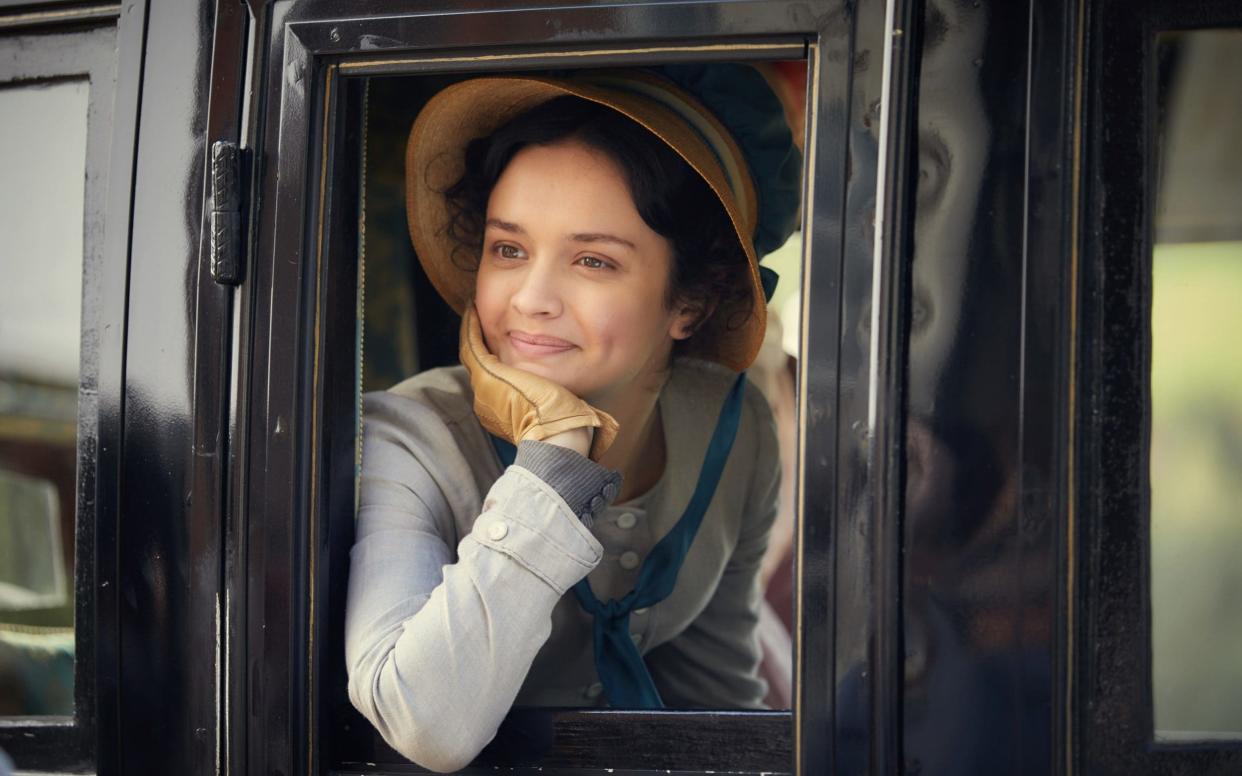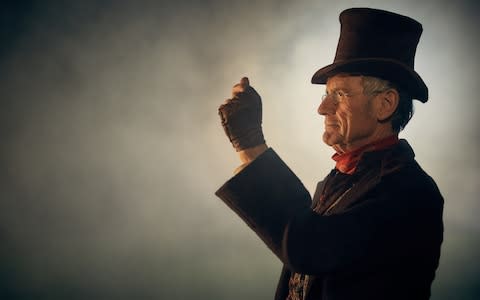Vanity Fair, episode 1, review: archness and anachronisms abound in adaptation of Thackeray's classic

The sets were lovely, the Regency clothes convincing and the romantic juveniles better looking than nature on average supplies. What more could be wanted for a Sunday night costume classic than Vanity Fair (ITV) reconstructed by Gwyneth Hughes into an easy-to-follow tale of the orphan Becky Sharp (Olivia Cooke), on the make and angry with the world?
Is Becky the picaresque heroine or the insufferable egotist of the story? We may have had our doubts when she manipulated her friend Amelia (who would “cry over a dead canary” – wouldn’t we all?), played winningly by Claudia Jessie. By the end of the episode, as she declared “Tomorrow will be better than today”, Becky seemed another Scarlett O’Hara.
In a costume drama, a favourite game for the audience is to spot anachronisms. They might have punched the air in the first minute on seeing the galloping-horses roundabout (as in Oh! What a Lovely War) introduced by Michael Palin as William Makepeace Thackeray in the role of ringmaster. It was lit by electric bulbs.

I was more worried about how much Thackeray would poke his nose in, which in the book he does far too much for my liking. Fortunately he left it at observing that Vanity Fair is the place where “everyone is striving for what is not worth having”.
Even so, a surfeit of nudging ensured that viewers spotted dramatic ironies. This turns comedy into archness. There was arch music over the scene where Becky gamely ate some hot curry to win the heart of her friend Amelia’s fat brother Jos (David Flynn). When Amelia’s father (drily done by Simon Russell Beale) spoke slightingly of “mahogany” offspring in India, the black footman Sam glanced conspiratorially towards the viewer in fellow disapproval.
In the book the footman is always called Sambo, never Sam for short. But the word Sambo must not be breathed on screen. Perhaps editions of the novel will in future be printed with the name apocopated too.
Sam (treated fairly sympathetically by Thackeray, who is generally unkind to everyone including servants), turned into a prophet on television by quoting “The rich man in his castle …” from All Things Bright and Beautiful, whose author was not even born at the time of Waterloo.
But as Scarlett O’Sharp, having failed to net rich Jos, arrived at the Gothic horror pile of Sir Pitt Crawley (Doc Martin's Martin Clunes) to set up a new suitor for episode two tonight, the jury must have been on her side.
Solve the daily Crossword

